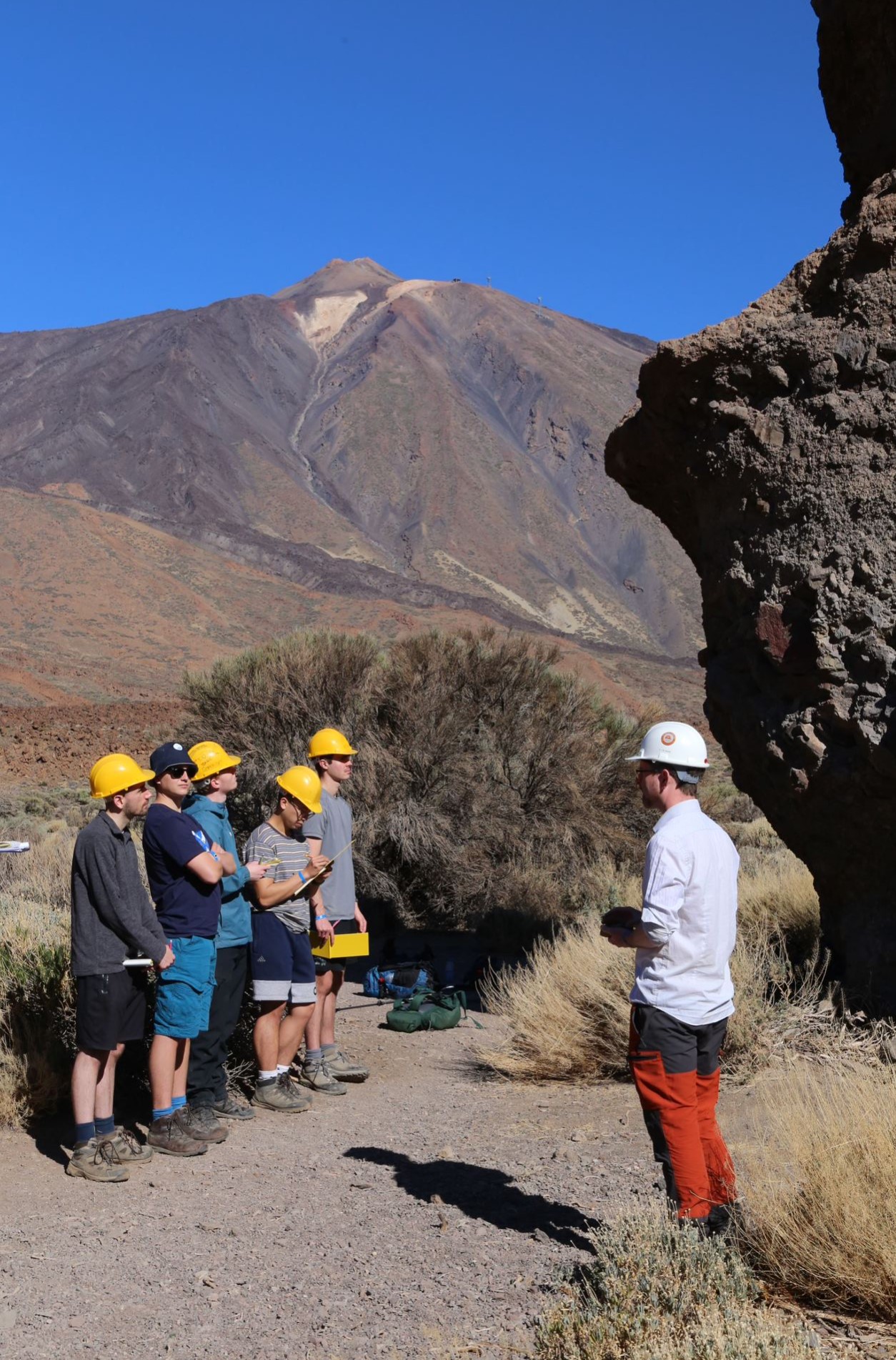Southampton geology students resume fantastic field trips to the Canaries

Southampton geology students have been able to resume exciting fieldwork in the Canary Islands for the first time since the world went into lockdown due to the COVID-19 pandemic.
A key attraction of Southampton’s undergraduate geology degrees is the opportunity for students to spend a week in Tenerife examining volcanoes and volcanic products.
The research trip had to be put on hold during the pandemic, but with the lifting of some travel restrictions, students on BSc and MSci Geology, BSc and MSci Geophysics and Geology, BSc and MSci Environmental Geoscience, BSc Geophysical Sciences and MSci Geophysics, recently got the chance to visit the volcanic island.
The trip is part of the third year Volcanic and Mantle Processes module and module leader Dr Rex Taylor, Associate Professor in Geochemistry and Volcanology, said: “It was brilliant to be able to resume our field trip to Tenerife, adhering to COVID-19 regulations.
“The trip is the most popular geology field course and is one of the reasons students choose to study these courses at Southampton. During the week-long trip the students investigate the processes that generate effusive and explosive volcanics, examine pyroclastic deposits and the relationship between caldera development and progressive magmatism.
“It is important that our undergraduate students understand volcanic processes in the field as many of them go on to do PhDs or an MSc in volcanology. This trip provides great training in specialist field techniques.”
Felix Nelson, a third year MSci Geology student, went on the trip. He said: “I thoroughly enjoyed my fieldwork in Tenerife as I got to see some of the world's best examples of volcanic deposits.
“I believe field trips are fundamental to geology students as they allow us to apply our knowledge from lectures to real-world examples and give us an insight into the career of a geoscientist.”
As well as resuming the Tenerife field trip, Rex also got the opportunity to take two PhD students to the nearby Canary Island of La Palma to carry out research.
He said: “We are investigating the mechanisms which drive large, explosive volcanic eruptions; and discovering the rate and consequences of the spread of hot mantle beneath the crust - this may be the driver for continuing volcanism in this region off the African coast.
“On our recent trip to La Palma we were able to continue this research by collecting geological research samples and examining the ongoing eruption. This research feeds into the wider Ocean and Earth Science research at Southampton that uses geochemical techniques to investigate the evolution of volcanism around the globe.”
One of the students Emma Horn, who is working within the Geochemistry Research Group on her PhD - Using mantle cumulates as an insight into explosive volcanic eruptions and a geochemical understanding of the magma reservoir below Tenerife - said: “Doing fieldwork is the best part of my research. Being able to put my walking boots on and spend every day of the trip outside, provides me with a great opportunity to develop my fieldwork skills."